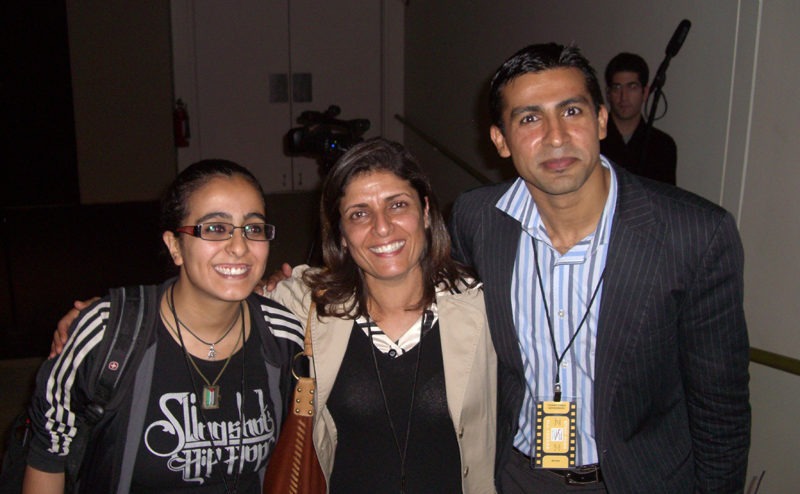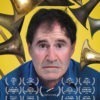
Film Festivals | Massachusetts
Report from the Field: The Boston Palestine Film Festival
Written by Lauren Folden | Posted by: erin
The Boston Palestine Film Festival opened with an intense set of films on October 4th at the Museum of Fine Arts (MFA), Boston. The festival, in its second year, screened over 60 films in seven venues throughout the Greater Boston area to commemorate the 60th anniversary of the Nakba, the beginning of the Palestinian refugee crisis spawned by the 1948 Palestine War. At the MFA, the presentation was decidedly unfussy, and the films were preceded by a serious discussion of the film, Maria’s Grotto.
The director of Maria’s Grotto, Buthina Canaan Khoury, set the tone for her emotionally charged documentary feature with a brief introduction about its subject, “honor killings.” She explained that honor killings, or the murder of women who are considered promiscuous by Islamic standards, are only part of the larger cultural issue of violence against women. Maria’s Grotto gives highly personal accounts of four women persecuted in Palestine.
One of the film’s subjects, a hip-hop performer, Abeer, was also present for the screening. She spoke not just of the atrocities of honor killings against people in her community but of her fledgling independence in a country that offers women very few liberties. Khoury explained that the film was not made to criticize Palestinian culture but to raise awareness. “Now,” she said, “it is time to start talking about such things.”
In the question and answer period that followed, Khoury explained that honor killings are “not linked to religion, but traditions,” and that they could be compared to “a crime of passion” in any culture. Abeer discussed the threat imposed on all women’s actions in Palestine, but was adamant that she was part of a young, hopeful generation of Palestinian women.
The audience also had its share of questions and comments, which developed into of a forum on all things related to Palestinian culture, prompting one audience member to remark, “Before we can free Palestine, we have to free ourselves.”
Maria’s Grotto was accompanied by the documentary short, First Picture by director Akram Al-Ashquar. In only 26 minutes, First Picture took the audience on a heart-wrenching journey through the lives of imprisoned Palestinian women and the children that they are forced to raise behind bars. Not for the faint of heart, First Picture also exposed some of most disturbing cruelties of Israeli prison practices, including chaining pregnant inmates to their beds while they give birth. Khoury estimated that there may be some 107 pregnant women or mothers of young children currently imprisoned in Palestine, but was unable to verify this, because statistics are not recorded.
Another issue of Palestinian life was presented in a second documentary short, Power. Power tells the story of a young Bedouin man who lives in the village Sawaed, where there are neither roads nor electricity, as it is not assisted by the state of Israel. Sakr joins the Israeli Army because “an Israeli uniform is treated with respect.” He also needs to support his family and ailing little sister. This decision, however, is not without conflict and the film recognizes the difficulties of being Muslim in Israel. Other Muslims living in his village label him a traitor. But for his family to thrive, Sakr says, “the most important thing is electricity.” Running 15 minutes, Power, by award winning filmmaker Ayelet Bechar, was a favorite among viewers for its inspiring story of sacrifice.
Power was followed immediately by the experimental short, A Day In Palestine, which impressionistically depicts Palestine’s vivid, sun-drenched landscape. Without words, the film shows the complexities of life in the Gaza Strip through brief images of Palestinians climbing massive concrete walls and Israeli soldiers roughly policing Palestinian citizens. The overall impact of the film was very brief but provided realistic glimpses into Palestinian life.
Territories, a documentary feature by filmmaker Mary Ellen Davis, also screened. Both curious and adventurous, photographer Larry Towell travels from his home in Southern Ontario, Canada to the United States, Mexico, and finally to occupied Palestine, as a member of Magnum Photos Agency. The theme of the film develops around Towell’s recollections of September 11th, of which he says, “this happens in other parts of the world every day,” and so Towell’s travels take him to the places or Territories where tragedy is more prevalent. But Territories is more than just a photographer’s journey, as it also explores the various injustices and dilemmas of immigrants around the US/Mexico border and occupied Territories of Palestine.
Not content to photograph his subjects simply from an artistic standpoint, Towell explains his passion for letting his subject direct his art. He said, “what I had to say as an artist was not that important, but what he (the subject) had to say was.” The result is both highly personal and eye opening, taking viewers beyond the normal press images of the aforementioned Territories.
With its broad range of films and venues, the Boston Palestine Film Festival had a strong second year. Its well-organized staff and eager audiences are sure to make it a Boston institution.
For more information on any of the films screened, look no further than the festival’s website http://bostonpalestinefilmfest.org/.
For more information on any of the films screened, look no further than the festival’s website http://bostonpalestinefilmfest.org/.










